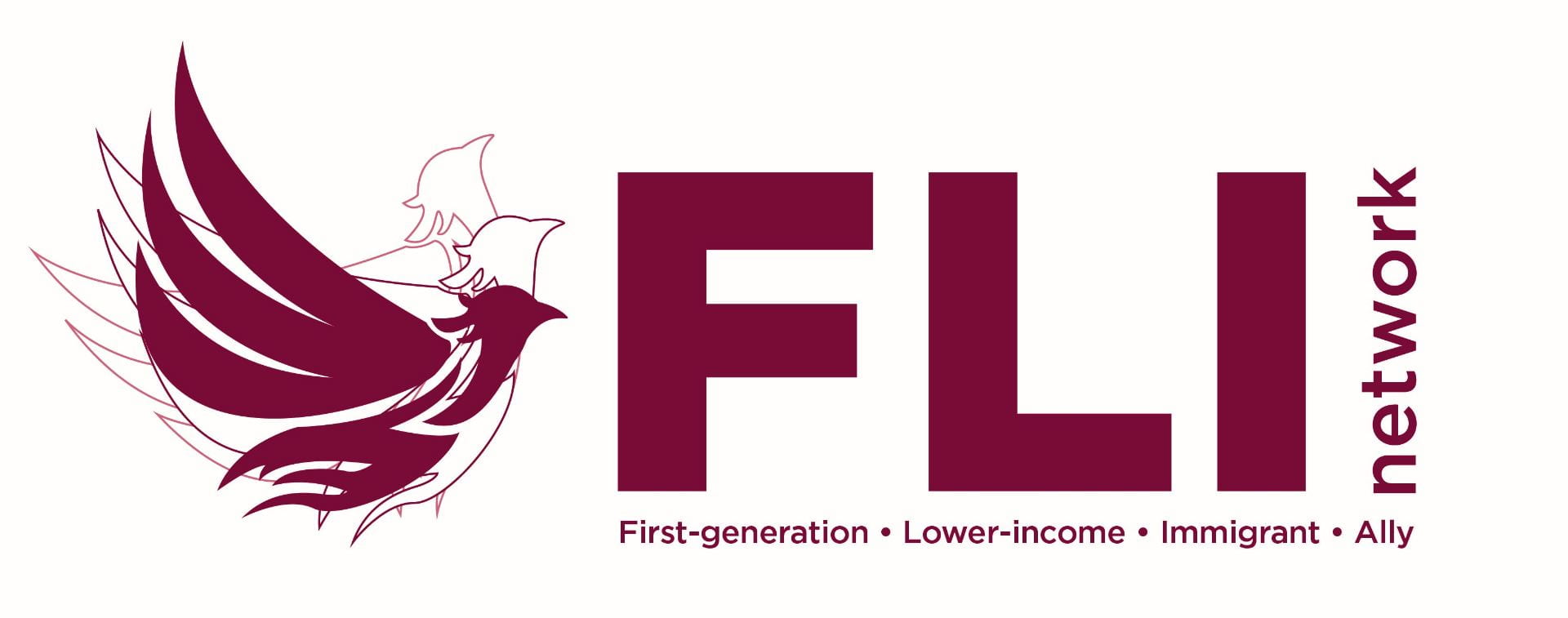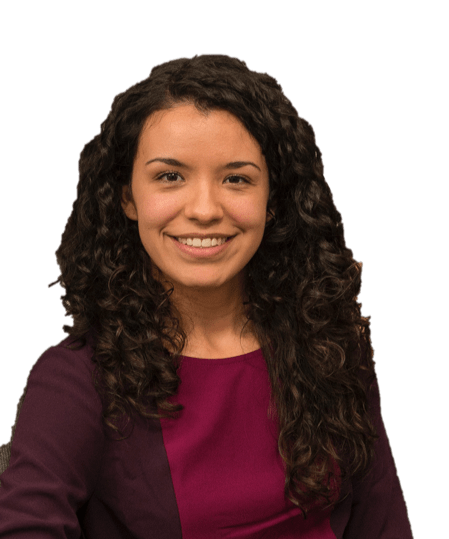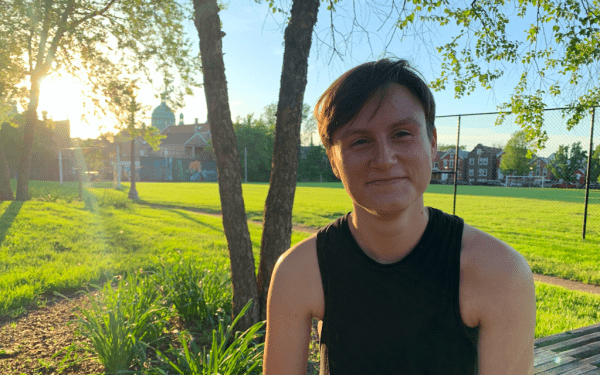To increase visibility, share advice and highlight successes of the First-generation, Lower-income, and Immigrant UChicago community members
Vicki Bonilla
Q. Can you describe your background?
-
-
My name is Victoria Bonilla (she/they) but I go by Vicki. I’m a low-income/daughter of immigrants third year in the College double majoring in Anthropology and Critical Race and Ethnic Studies. I grew up in Houston (Coahuiltecan and Sana land) but my family is from Ecuador (Kichwa land). On campus I organize with UChicago United (join #ethnicstudiesnow!), kind of on campus I work for the Community Programs Accelerator, and off campus I’m an intern at the National Immigrant Justice Center with their Asylum unit.
-
Q. What are you most passionate about and why?
-
- “Education for Liberation” is something that lately has been able to describe what I’m most passionate about. By putting power in the hands of students and community members, we would be able to realize an abolitionist university— one where no “price to attend” or campus police would stop anyone from receiving UC resources. Relatedly, “Education for Liberation” means recognizing lived experience/embodied knowledge as the histories we should grow from.
Q. What has been your proudest moment at the university so far?
-
- Something I’m most proud of experiencing UCU occupy KYL’s house for a week— a testament to UCU’s resilience and (actual) commitment to QTPOC/FLI students and community.
Q. What are the biggest obstacles FLI students face? What is the best piece of advice you’ve received to help overcome them?
-
- As a queer womxn of color one of the biggest obstacles I’ve faced is self-doubt. Not necessarily the kind of “do I belong here?” but “am I doing enough to make my people proud?” To that I would share advice that my friends have told me and have embodied for me: relationships aren’t transactional, you don’t have to prove your worth through success. And with that I’ve been able to journey forward doing what I love with who I love for what I love.
Interview by Eseme Segbefia
Ireri Rivas
Ireri Rivas, Director of Student Support Services, nurtures a supportive environment to enhance personal, professional and social experiences of the UChicago FLI community members. She highlights the diversity of FLI students and encourages them to find spaces that support their endeavors.
Below are the highlights of our conversation:
Q. How did your affiliation with the First-generation, Lower-Income and Immigrant (FLI) community influence your choice of profession?
A. As a college student, I was acutely aware of my identity as an immigrant mostly because a lot of conversations around immigrant rights and legislation were taking place at the same time. I became an immigrant rights activist and helped organize one of the biggest pro-immigrant rallies in my city. Thousands of people came together to show their support, which was surprising in a rather conservative city.
During the next few years, new legislation continued to show signs of allyship from different communities. I saw the DREAM Act come up along with the idea of framing education as a path to citizenship. Life as an activist and a critical thinker led me to this space where I work very closely with FLI graduate students. In a way, my experience is coming full circle.
Q. What advice do you have for someone trying to navigate the social structures at the University of Chicago as a FLI student?
A. I think about this on a regular basis because our social lives are constantly evolving. Right now, I would tell students to advocate for themselves while remembering that there are tons of us cheering them on. You have to find a balance between putting yourself out there to make connections and recognizing that many people within your network will also network for you. It can be very challenging, especially if you are shy or afraid, like I was in college. Try to find overtly welcoming spaces like the FLI Network, where people have already signaled their shared experiences or allyship.
The more relationships you build throughout your career, the more you learn about different resources available to you. No single person is going to have all the answers. It is a continuous journey that you have to go on.
Q. What would you like UChicago affiliates to know about the FLI community?
A. The UChicago FLI community is extremely diverse and brings in many amazing experiences and skills. All of us do not necessarily fit a category or identify with all parts of “FLI”. I encourage everyone to take time and get to know the diversity of FLI members on campus. We should try to stay away from stereotypes or categories that reduce the diversity of backgrounds.
Q. What are you thankful or grateful for today?
A. On many days, the quarantine feels bizarre. I miss little things like having lunch with my colleagues or planning vacations with family. I am grateful for all my friends and family who have kept in touch during the pandemic. I feel connected with them because I know that they are only a call or Facetime away. I feel grateful for that.
Q. What has been your proudest moment so far?
A. Organizing the immigrant rights rally in college was definitely one of my proudest moments. I did not expect the magnitude of turnout or support that we got. One of the main intersections of the city was blocked and it was covered in the news for many days. It was also the first time in Nevada’s modern history when immigrants, their contributions and experiences were celebrated.
Alex Duarte
Lauren Beard
Lauren Beard, a third-year doctoral student at the University of Chicago Department of Sociology, actively contributes to national and campus-based initiatives for FLI students. She reflects on her identities and encourages fellow members of the FLI community to celebrate their journey.
Following are the highlights of our conversation:
Q. What challenges do you face as a FLI student?
A. Since there is no FLI affiliated student organization in my department, identity related topics are easy to overlook. At the same time, people may not always be comfortable addressing select aspects of your identity. For example, I have found that people in the administration are much more willing to address the “first-generation” part of my identity than the “lower-income” part. This is a problem because support systems for those two parts might not always look the same.
Even when administrators are comfortable talking about identity, a lot of the burden falls on students to provide and execute ideas. FLI students usually have to rise to this challenge in addition to managing everything in their academic and personal lives.
Q. As a FLI student, what is one change you wish to see during your time at the University?
A. While the university acknowledges presence of the FLI community, it can improve the way it celebrates us. In my experience, there is a weak sense of belonging among FLI students on campus. Some students are scared to disclose FLI identities because people in their departments might look down on them. While not explicit, I have experienced backhanded insults.
We need more discussion and acceptance. The FLI community contributes to the campus in a lot of ways and it should be encouraged and celebrated. Departments can start by recognizing instances of elitism and addressing institutional gatekeeping of academic work.
Q. What is one initiative that you wish the University continues promoting?
A. Across the board, the university has a lot of resources. I am very grateful for programs hosted by SSS and the FLI Network. These initiatives play a huge role in building and maintaining the FLI identity on campus, all the while making it more accessible to students across campus.
Q. What has been your proudest moment so far?
A. I am proud to say that I stayed in touch with my FLI identities through my undergraduate, and now, graduate programs. In elite academic institutions, we are so often faced with systems that are explicitly counter to our identities and experiences. When I first came to the university, I made a very intentional choice to be an active member of the FLI community and SSS. Now, in my third year, I see the long-term benefits of those decisions. I am more confident in having direct conversations with advisors and suggesting areas of improvement and change. I am grateful for choosing to stay connected to the FLI community because it empowered me to better express myself.
Janiel Santos
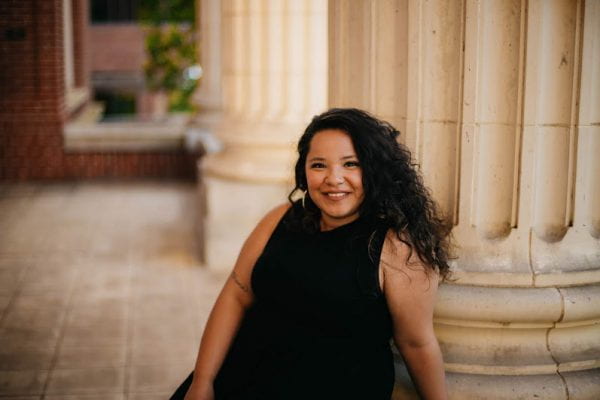
Janiel Santos is a Master of Public Policy (MPP) candidate at the University of Chicago Harris School of Public Policy
Janiel Santos is a Master of Public Policy (MPP) candidate at the University of Chicago Harris School of Public Policy. Sharing her experiences as a first-generation student, she encourages incoming FLI students to seek spaces and mentors that celebrate FLI identities and strengths.
Following are the highlights of our conversation:
Q. How did your affiliation with the First-generation, Lower-Income and Immigrant (FLI) community influence your field of study?
A. Even as a child, I was aware of barriers that make higher education less accessible and equitable for some communities. As the first person in my family to have access to formal education, I quickly realized that the general college student population did not share my background or identity.
Instead of devising band-aid fixes that do not have long-term impacts, I started pursuing higher-education policy to address root causes of persistent education inequalities. I do not believe that everyone wants or should be pushed into pursing a degree at a traditional 4-year University. Education has many forms and all are valuable. People should be encouraged to take their educational path into their own hands and explore alternative forms of education and be inspired to pursue other opportunities such as vocational training or similar programs. Through a policy focus, I want to ensure that post secondary institutions can respect those individuals’ choices and allow better economic mobility regardless of access to traditional education.
Q. How have you navigated the social structures at the University of Chicago as a FLI student?
A. I had an amazing mentor during my undergraduate program who asked me if I took on extra responsibilities at work as a survival tactic. I immediately realized that my identity as a first-generation student led me to believe that I had to go the extra mile to prove myself and my capabilities. Some of my peers who came from more privileged backgrounds or had more capital did not have the same sense of unease in those spaces. Now, I try to balance doing good work and scaling back to take care of myself. It is easier said than done. But, being in spaces where I do not have to explain my background or identity has allowed me to find friends and peers who want me to thrive.
Connecting with people who share my identity as a first-generation student also allows me to talk about school-related issues that are harder to discuss with family members. Communicating with people who have gone through a similar process or experience makes me feel more welcome in an elite college setting.
Q. What is one change you wish to see during your time at the university?
A. I would like to see more established spaces on campus that cater to FLI students. It is wonderful to have the FLI Network. But I wish to see more departments integrate the network as an integral and public part of the graduate student experience.
When I first came to the university, someone told me not to share my identity as a first-generation student with others because it might lead them to look down on me. As someone who is really proud of making it through college, and now, graduate school, I was shocked to hear that I should hide a major part of my identity. It is crucial for all departments to play a more active role in becoming better allies and encouraging FLI students to achieve their best potential.
Q. What has been your proudest moment so far?
A. I am proud to be pursuing my Master’s degree and affirming that I understand some advanced Calculus and Algebra. After completing Harris’ Core program, I am more confident in my quantitative skills. Moving to Chicago and starting a new life has been scary yet exciting. With everything going on in the world, I am extremely grateful for my home, family and health.
Janiel will be a panelist for the FLI Orientation Panel on Wednesday, October 7 at 1:00 PM CST. Join us to learn more about her experience and advice!
Sidra Siddiqui
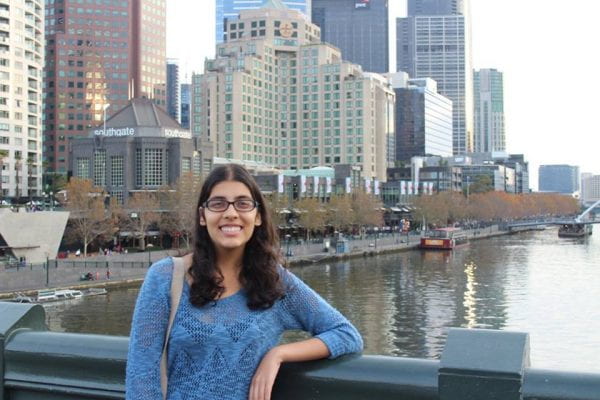
Sidra Siddiqui studies Social Work with a concentration in Administration and Global Social Development at the University of Chicago School of Social Service Administration.
Sidra Siddiqui studies Social Work with a concentration in Administration and Global Social Development at the University of Chicago School of Social Service Administration. As a Graduate Assistant for SSS, she deepens her commitment to a human-centered policy approach and shares advice for incoming FLI students.
Following are the highlights of our conversation:
Q. How did your affiliation with the First-generation, Lower-Income and Immigrant (FLI) community influence your field of study?
A. Growing up, I witnessed the impact of helplessness, desperation and loneliness caused by social and economic instability. But, I also witnessed the power of compassion, empathy, and unconditional support. I noticed that many burdens were caused because of systemic oppression, not due to inherent shortcomings or lack of ability. I realized that our systems and policies need more empathy. I chose to pursue a Master of Social Work to build a human-centered policy approach and influence immigrant advocacy efforts. My affiliation as a first-generation and lower-income student constantly allows and reminds me to view policies through equitable and intersectional lenses.
Q. What challenges did you face as a FLI student?
A. Many FLI students face a fine line between being invisible and being hyper-visible. For example, I was once the only Muslim student in class and my professor illustrated a scenario of using culturally competent social work practices while working with Muslims during Ramadan. I sat there feeling hyper-visible because I was unwillingly made the sole representative of my culture. Frustration usually comes along with being a token minority because one may feel pressured to speak up in settings where one necessarily does not want to or would not have if another member of your community was present.
On the other hand, there have been instances where as a FLI student, I have felt invisible. There are many opportunities on campus that you have to pay to participate, and even though sometimes there is funding available, lower-income students may still not be able to join because the funds are not enough or are based on reimbursements. This is a problem especially at UChicago because elitism is a huge part of the institution; in addition to the tuition, social and professional demands are also expensive
Q. What advice do you have for incoming FLI students?
A. Something that I have been reflecting on, especially during the pandemic, is that productivity should not define your worth. This is especially important for FLI students who are socialized into being high achievers because we are supposed to be the ones beating the odds. There is immense pressure to make your community proud because they have made many sacrifices to support you. But, we need to remind ourselves that those individuals are going to be proud of you no matter what.
I would also encourage students to take time to explore how the University fits within the greater Chicago community. Some of my happiest memories have been at the 61st street farmer’s market and exploring parks and neighborhoods in Chicago, which host a lot of community events. Although coursework and daily life can be daunting, it is good to remember that we do not exist in silos.
Q. Is there a specific resource on campus that you would like students to know about?
A. SSS offers the FLI Champions Program, which is a formal mentorship program that I managed as the Graduate Assistant this year. We really try to connect students with mentors who not only share academic areas of interest but also identities. Having someone to give you advice, listen to you vent, and coach you through certain situations helps personal and professional development. To find people who understand why you make certain decisions, all of us need to have honest conversations that allow us to build together. I connected with my personal mentors by being vulnerable with my experiences and being accepting of theirs. There are a lot of individuals with past experiences – professional and personal – that extend beyond their current lives, and the FLI Champions Program is a forum for celebrating those stories.
Q. What has been your proudest moment so far?
A. I am proud that I took the step to apply to and attend graduate school. I am the first in my family to earn a Bachelor’s degree, let alone a Master’s, so there were a lot of unknowns about this whole process. I chose to transition as soon as I finished my undergraduate program and as a senior in college, it was hard to see my peers going straight into the professional world and taking steps towards financial stability. It makes me really proud to hear my mother share my work and activism with her friends and family.
Sandra Zupan
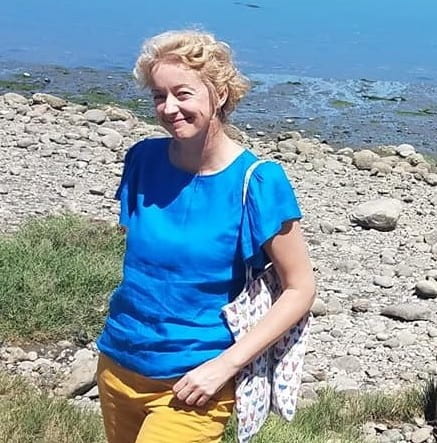
Sandra Zupan is the Assistant Director at the University of Chicago College Center for Research and Fellowships
Sandra Zupan, Assistant Director at the University of Chicago College Center for Research and Fellowships, looks beyond monolithic labels and recognizes each student’s strengths, weaknesses and passions. She emphasizes the importance of carving individual stories with unique learning experiences and advises students to explore opportunities that may not follow a conventional definition of success.
Following are the highlights of our conversation:
Q. How did your affiliation with the First-generation, Lower-Income and Immigrant (FLI) community influence your choice of profession?
A. I grew up in a small working-class town in Croatia, which at the time was part of the former Yugoslavia and later torn up by a war in the 1990s. In 2001, I came to the United States through a Department of State Fellowship. I planned to complete my Master’s degree and return to my home country. But, I ended up exploring new opportunities that led me to complete a Ph.D. in Geography. While conducting my dissertation research in Milwaukee’s inner-city neighborhoods, I was exposed to urban America, social injustice and labor-faith-community alliances seeking to ensure equitable economic development. Since I grew up in a completely different socio-economic system, ideas of racialized poverty and inequitable access to opportunity were not only foreign to me but also affected me profoundly. My affiliation as a first-generation college graduate and an immigrant afforded me a different perspective than someone who grew up in the U.S. Equally, my social science training and commitment to education motivate me to support the FLI community.
Q. You are a mentor for our FLI Champions program. What are your thoughts on mentorship?
A. Formal and informal mentorship are invaluable regardless of your stage in life and career. Students should strive for holistic engagement that allows for academic, professional and personal growth. For example, by participating in extracurricular activities students can also greatly benefit from informal mentorship. We have different needs at different points in time and hearing multiple, different perspectives challenges us, allows us think more innovatively and enables us to grow.
Through my work and experience in the FLI Champions program, which is a formal mentorship program, I have found that some FLI students are extremely resourceful precisely because they recognize that they lacked structural guidance. My current mentee is extremely proactive, engaged and well-organized. We have a productive relationship, which has grown organically: my mentee initiates conversations on topics that she needs help with and I respond to her needs by guiding her through her undergraduate experience as a first-generation student. Our work evolved from ensuring effective study tactics to working together on resume writing, strategizing internship plans, and academic writing.
Q. What advice would you give to FLI students?
A. It is important to expose yourself to opportunities that you have not planned for or considered pursuing. I have noticed that some students at the University pursue extracurriculars without necessarily reflecting on their own passions and paths. High achievers sometimes tend to ignore opportunities that do not fit their predetermined plans and expectations. There is an inclination to accumulate experiences, hopping from one opportunity to another without taking the time to self reflect and re-examine. Instead, I encourage students to enthusiastically open as many doors as possible and actively reflect on which one excites them the most, and why. Everything you do-academic and non-academic- helps you construct a clear and meaningful path for your future. Your experiences should not be disjointed from each other, so do not be afraid to give yourself space and time to reflect, as well as to reach out to your support networks.
Q. How can the University of Chicago community better support FLI students?
A. The University of Chicago has abundant and generous opportunities, on a much greater scale than many other higher education institutions. However, rather than compartmentalize, we can improve by consolidating and streamlining these opportunities for students to gain better awareness and meaningful support. For many students it is difficult to make decisions that will impact them in the long term, while managing a demanding coursework and extracurriculars. Strategic collaboration across different offices could serve our diverse student body even more effectively.
I would also like to remind us that FLI students are not a monolithic group. Rather, we interact with students with highly individualized needs, strengths, challenges, backgrounds and passions. As a result, we must understand each individual’s story at a particular moment in time and assist from there.
Q. What has been your proudest moment?
A. I am proud of my educational accomplishments because they allow me to assist others professionally. I had never planned it, but I ended up staying in the United States, completing a Ph.D. program and working in higher education. I take pride in overcoming many impediments and taking chances because, in the end, this has enabled a path in which I can help undergraduate students achieve their potential.
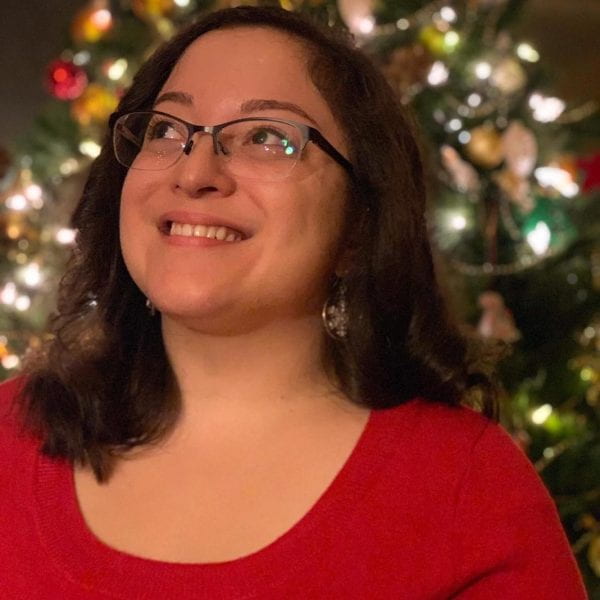
Jessica Donada (A.M. ’20) is an advanced standing Social Work student with a concentration in Administration at the University of Chicago School of Social Service Administration.
Jessica Donada’s Letter to the FLI Community
Thank YOU for being here. As first-generation, lower-income, immigrant students, we face unique challenges that other university students don’t. From filling out the FAFSA ourselves – because our parents can’t read English or have never filled one out – to visiting college alone – because our parents couldn’t take off work, we had to learn to exist as a FLI student at UChicago. I want you to know that you are seen, and your hard work is noticed.
As an Advanced Standing School of Social Service Administration Master’s student, I was only a part of the University for one year, less than that in person as COVID-19 hit. Juggling my coursework, social work field placement, and part time job—all in different parts of the city, commuting 1.5 hours each way to campus didn’t allow me to take part in any of the Center for Identity and Inclusion’s resources or events for FLI students. However knowing that they existed, simply through their newsletters, I believed that they were there for me if I needed. It was reassuring. My story may resonate with you, but if I could go back and attend an event for FLI students, I would. I hope you will get a chance to attend at least one too. Even if I wasn’t able to attend those events, having a good group of friends who shared the same background and struggles as me was essential; knowing that I was not the only one struggling with situations unique to FLI students was incredibly helpful in the times that I felt like I didn’t belong, that I wanted to quit, that I was going to fail.
If you could take away one thing from my letter is that you DO belong at the University of Chicago. I had to continually remind myself of that every time I stepped off the #2 bus in front of SSA’s building. When I was applying for a Master’s programs, I couldn’t even fathom being at this University. My mother sat with me as I completed the application and wrote and rewrote my statements. When I was accepted, she told me, “You see, you do belong, mija.”
